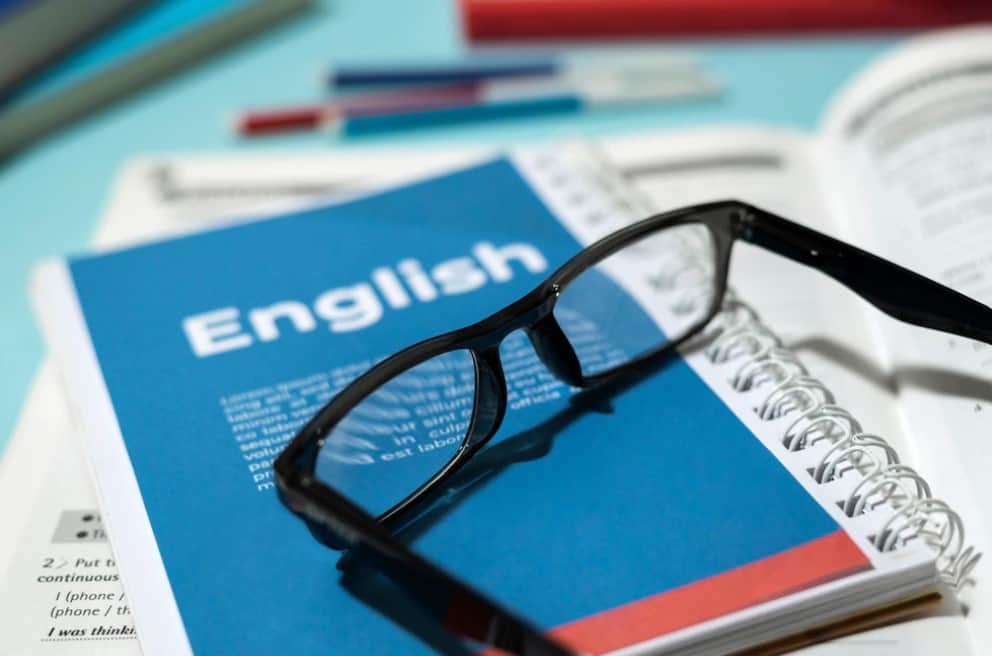
Meeting the English language requirement is a critical factor in obtaining a visa in the skilled visa category. The minimum competency level required will vary depending on the visa you are applying for and can include things like your country of passport/citizenship, achieving a minimum score in a specified English test, or completing a specified period of English study.
If you are required to take an English test, the date of the test is also an important consideration because time limits apply for visa applications. It should be noted that an English language requirement may also apply to visa dependents; however, this is usually at a lower level of English competency than for the primary applicant and can be satisfied by paying an additional fee before a visa grant as an alternative.
In this article, we will discuss the English language requirements for skilled visas, as well as the documentary evidence that must be provided to demonstrate that you meet this requirement.
What Is a Subclass 190 Visa?
The Skilled-Nominated visa subclass 190 allows highly skilled workers nominated by an Australian State or Territory to live and work permanently in Australia. To apply for this visa, you must first obtain a positive skills assessment for your nominated occupation before submitting an Expression of Interest. If you are successful and are nominated by a State or Territory, you will be invited to apply for a visa.
We can help you at every stage of your skilled visa application.
The minimum requirements for this visa are as follows:
Subclass 190 Requirements
If you are invited to apply for this visa, you must do the following:
- be under the age of 45
- nominating an eligible occupation from the current Short-term Skilled Occupation List (STSOL) OR the Medium and Long-term Strategic Skills List (MLTSSL)
- have your skills evaluated by a qualified Australian skills assessor
- authority as appropriate for your chosen occupation
- possess competent English,
- hold a valid passport issued by the United Kingdom, the United States, Canada, New Zealand, or Australia
- Ireland, Republic of (and you are a citizen of that country) OR
- a minimum IELTS test score of 6 in EACH test component OR
- a minimum OET test score of B in EACH test component OR
- a TOEFL iBT test score of at least 12 in listening, reading, writing, and speaking OR
- a minimum PTE test score of 50 in EACH test component OR
- a minimum CAE test score of 169 in EACH test component
- NOTE: In each case, the test must have been completed within three years of the visa application.
- pass the relevant points test with a score of at least 65 (which takes into account your age, English competency, qualifications and work experience, amongst other factors)
- be nominated by a government agency in an Australian state or territory
Anyone wishing to apply for this visa must first be nominated by an Australian State or Territory, and then be invited by the Department of Home Affairs to submit an application (the DOHA).
To be eligible for State/Territory nomination and an invitation to apply for this visa, you must submit an ‘Expression of Interest (EOI)’ that explains how you meet the requirements for this visa.
The English Language Requirement
The English language requirement for this visa type remains unchanged (i.e., it is identical to that of subclass 189). This is illustrated below.
- You must be able to communicate in ‘competent’ English, which slot is satisfied if you have:
- A minimum IELTS score of 6 in each of the four test components (speaking, reading, writing, and listening); or
- A minimum of a B on the OET test in each of the four test components of speaking, reading, writing, and listening; or
- A TOEFL iBT test score of at least 18 in each of the four test components: 18 in speaking, 13 in reading, 21 in writing, and 12 in listening; or
- A minimum PTE Academic test score of 50 in each of the four test components of speaking, reading, writing, and listening; or
- If you have a passport from the United Kingdom, the United States, Canada, Ireland, or New Zealand, you can enter the country.
Please keep in mind that this is the minimum English language requirement for all primary visa applicants.
If you are counting points based on your English language ability; you must still meet the relevant requirement to gain those points.
Also, if you are applying for Skilled Migration, you must demonstrate your English language proficiency. The required level of English depends on the visa subclass you are applying for, and there are four possible levels of English:
- Excellent English: 20 points on the GSM points test
- 10 points on the GSM points test for English proficiency
- Competent English is a prerequisite for General Skilled Migration, ENS, and RSMS.
- Vocational English: used to be required for General Skilled Migration and Employer Sponsored Visas.
- Functional English: for secondary applicants who wish to avoid the English Language Charge.
English Timing
The timing of the English language requirement is determined by the type of visa being sought:
- General Skilled Migration: Invitation Time RSMS and ENS Visas: Application Time
- Because booking a test and receiving the results can take some time, you should plan to take the English test well ahead of time.
Functional English: for secondary applicants who wish to avoid the English Language Charge.
English Test Validity
The Department of Immigration will accept tests performed up to three years prior to the filing of an application.
The only exception is functional English, which requires testing to be completed at least 12 months before filing.
Acceptable English Tests
The IELTS test is the most commonly used method of demonstrating English language ability. The Department of Immigration accepts either the Academic or General Training versions of the test, but some skill assessment authorities require applicants to take the Academic version. You must obtain a minimum score in each IELTS band (Reading, Writing, Listening, and Speaking) in a single sitting.
The Occupational English Test (OET) is also accepted as proof of proficient and superior English proficiency. Only medical and allied health professionals should take the OET.
All skilled subclasses now accept the Pearson Academic Test of English (Pearson PTE) and the TOEFL Internet-Based Test (TOEFL iBT). Most state and territory governments, as well as some skill assessment authorities, accept these tests.
Vocational English
The following are the required scores to establish Vocational English:
| Listening | Reading | Writing | Speaking | |
| IELTS | 5 | 5 | 5 | 5 |
| TOEFL iBT | 4 | 4 | 14 | 14 |
| PTE Academic | 36 | 36 | 36 | 36 |
| OET | B | B | B | B |
| Cambridge (CAE) | 154 | 154 | 154 | 154 |
Competent English
To meet the threshold criteria for most skilled visas, you must demonstrate Competent English. If you have a passport from one of the five countries listed below, you can establish competent English without taking an English test:
- Canada
- New Zealand’s
- The United Kingdom
- The United States
- Ireland
Otherwise, you must pass a recognised English language test with the following score:
| Listening | Reading | Writing | Speaking | |
| IELTS | 6 | 6 | 6 | 6 |
| TOEFL iBT | 12 | 13 | 21 | 18 |
| PTE Academic | 50 | 50 | 50 | 50 |
| OET | B | B | B | B |
| Cambridge (CAE) | 169 | 169 | 169 | 169 |
Competent English earns you 0 points on the Skilled Migration Points Test, but it is required to apply for a skilled visa.
Proficiency in English
You will receive 10 points for English language ability if you demonstrate proficient English.
Even native English speakers must take English language tests in order to receive points for proficient or higher English.
The following scores are required for Proficient English:
| Listening | Reading | Writing | Speaking | |
| IELTS | 7 | 7 | 7 | 7 |
| TOEFL iBT | 24 | 24 | 27 | 23 |
| PTE Academic | 65 | 65 | 65 | 65 |
| OET | B | B | B | B |
| Cambridge (CAE) | 185 | 185 | 185 | 185 |
Superior English
You will receive a maximum of 20 points for English language ability if you demonstrate superior English. The following are the minimum scores for Superior English:
| Listening | Reading | Writing | Speaking | |
| IELTS | 8 | 8 | 8 | 8 |
| TOEFL iBT | 28 | 29 | 30 | 26 |
| PTE Academic | 79 | 79 | 79 | 79 |
| OET | A | A | A | A |
| Cambridge (CAE) | 200 | 200 | 200 | 200 |
Functional English
If your spouse or partner does not speak English well, you will be required to pay the “English Education Charge” when applying for skilled migration.
You can demonstrate functional English ability by demonstrating one of the following:
- Completion of a degree, higher degree, diploma, or trade certificate requiring at least two years of English-medium study
- Completion of all years of primary school and at least three years of secondary school in English; or
- Completion of at least five years of secondary school in English; or
- Scoring at least 4.5 on the four components of the IELTS test within the 12 months prior to application or during processing; or Completion of at least one year of full-time or equivalent part-time study in Australia towards a degree, higher degree, diploma, or associate diploma in English medium.
- In some cases, functional English can be established through an interview.
You can also show functional English by taking an English test and scoring the following:
Test component
Average across test components only
| Test component | Average across test components only |
| IELTS | 4.5 |
| TOEFL iBT | 8 |
| PTE Academic | 30 |
| OET | n/a |
| Cambridge (CAE) | 147 |
In some cases, higher scores are required to meet skill assessment, registration, or points test requirements. Before scheduling a test, we recommend speaking with a Migration Advisor to assess your English language testing needs.
VISA APPLICATION PROCESS
Step 1: Initial Evaluation or Consultation
The first step is to meet with one of our Registered Migration Agents for a free initial assessment. If you have already received a free initial assessment, you must schedule a paid consultation. We will evaluate your current situation as well as your background.
Remember that the evidence you can obtain to support your claims will ultimately be the deciding factor. Prior to beginning a skills assessment and/or EOI, we will need to thoroughly review your evidence as an eligibility assessment.
If we believe you meet the minimum eligibility criteria, we will send you a fixed fee quote that breaks down the applicable fees for each step following the consultation.
To help you financially during the preparation stages of your Skilled visa journey, we offer split fee payments.
Step 2: Thorough Review & Pre-Assessment
We will conduct an initial comprehensive review and pre-assessment of your eligibility for this visa once you engage our services. This includes examining your qualifications, work experience, English language proficiency, and other circumstances to determine whether you are likely to meet the relevant requirements.
We will consider which occupation(s) you are likely to be able to nominate, as well as whether or not you are potentially eligible for a positive skills assessment from the relevant assessing authority for that occupation, as part of this initial comprehensive review and pre-assessment.
We will then give you detailed advice on your ability to meet the minimum standards (including State/Territory nomination) that the DOHA requires migrants to meet in order to be invited to apply for this visa.
Note: Please keep in mind that our preliminary assessment of your eligibility does not guarantee that you will (or will not) receive a positive skills assessment or nomination, or that you will be invited to apply for this visa. Whether or not you are successful in obtaining a nomination will be determined by the exact requirements of the relevant State or Territory at the time your EOI is evaluated. Each State and Territory government agency reviews and updates its criteria (including its list of acceptable skilled occupations) on a regular basis to reflect local labor market conditions.
Step 3: Skills Assessment
If our initial assessment shows that you are eligible for a positive skills assessment, nomination, and EOI, we will prepare your skills assessment application.
The DOHA has designated an assessing authority for each skilled occupation listed on the STSOL and MLTSSL. The DOHA will only accept a skills assessment conducted by the relevant assessing authority in support of an EOI.
We will provide you with a complete list of the information and documents needed to support your application. We will file your application with the appropriate skills assessing authority once you have provided the necessary details and documents, as well as the required assessment fee.
Step 4: Expression of Interest
We will prepare and submit your EOI once you have received a positive skills assessment from the skills assessing authority. You must now specify which Australian state or territory you want to nominate for your visa application. You can also choose to be available for nomination by any State or Territory.
Although no supporting documents are required at this stage, you MUST be able to provide evidence that the information provided in the EOI is correct when you are invited to apply for the visa.
You will be invited to lodge a visa application if you are successful in obtaining a State or Territory nomination (see below) and meet all other relevant requirements.
The DOHA keeps an EOI for two years from the date it is lodged. During this time, you can update your EOI if any of your circumstances change (e.g., you obtain a new qualification or skills assessment). If your ranking changes during this 2-year period due to either your changing circumstances or the State/changing Territory’s skill needs, you may be issued an invitation to apply for the visa at that time.
Step 5: State/Territory Nomination
After you have submitted your EOI, the government agency of the State or Territory you have chosen will review it to see if you meet their specific criteria for nomination (this includes the requirement that your nominated occupation is on the skilled occupation list for that State/Territory).
We will provide the evidence required by the State or Territory government agency in question to demonstrate that you meet their criteria. The nature and scope of the supporting evidence required vary depending on the State or Territory. Furthermore, you must be willing to live in that State or Territory for at least two years.
If your supporting evidence is accepted, the State or Territory government agency will nominate you for the Skilled-Nominated visa subclass 190.
Step 6: Apply for a Visa
We will prepare and lodge your visa application within the specified time frame, along with all of the documents that support the information that you provided in your EOI, once you have successfully obtained a State or Territory nomination and the DOHA has invited you to apply for this visa. This includes your skills evaluation, English language test results, qualifications, work references, and any other documents required.
We will handle the entire process for you and will assist you in strengthening your supporting evidence prior to filing. Upon commencement, we will provide you with your login information for our secure online portal. This portal is used to share important and confidential information and documents presented in your applications in a safe and secure manner.
Because each skilled visa application is unique, we will provide you with customised document checklists based on your specific situation.
We will complete all forms, applications, and additional submissions on your behalf.
You can be confident that your Registered Migration Agent has prepared and lodged hundreds of applications similar to yours and is knowledgeable about preparing ‘decision ready’ applications. It is critical that we get this right the first time. As a result, we will only file your application if we are confident that it has been properly prepared.
You will be granted a permanent visa if your visa application is approved. When your visa is granted, you may be in Australia or abroad.
Meeting the visa specifications
English language requirements are generally applicable to applicants who wish to study or work in Australia.
Check the eligibility page for the visa subclass you want to apply for to see what level of English you need and what proof you need to provide.
For English language visa requirements, the Department accepts scores from the following tests taken at a secure test centre:
- English as a Foreign Language Exam (TOEFL iBT)
- Pearson Test of English International English Language Testing System (IELTS), including One Skill Retake (OSR)* (PTE)
- Cambridge English Examinations (CAE) (also known as C1 Advanced)
- The Occupational English Test (OET) is a test designed for health professionals.
IELTS One Skill Retake (OSR) will be available for certain test takers beginning December 14, 2022. OSR enables test takers to retake one of the four test components (reading, writing, speaking, or listening) (once only).
The Department will accept IELTS test results that include OSR for Australian visa purposes, with the exception of applications for subclasses 476, 482, and 485, which require scores from a single sitting/attempt.
Partner Points
The partner English requirement for the 190 visas, as well as the partner English requirement for the 189 visas and the subclass 491 visa, apply to the calculation of the points awarded to the primary applicant in their skilled visa application.
The Migration Points Test may award 5 points if the applicant has a spouse or de facto partner who:
- is applying for the same visa category as the applicant;
- is not a permanent resident of Australia or a citizen of Australia; and
- was fluent in English at the time of the invitation to apply for the visa.
An extra ten points may be given if the applicant has a spouse or de facto partner who:
- is applying for the same visa subclass as the primary applicant;
- is not a permanent resident of Australia or a citizen of Australia;
- was under the age of 45 at the time the primary applicant received the invitation to apply for the visa;
- nominated a skilled occupation on the relevant Skilled Occupation List at the time of invitation to apply for the visa;
- and had been assessed as having suitable skills for the nominated skilled occupation by the relevant assessing authority at the time of invitation to apply for the visa.



